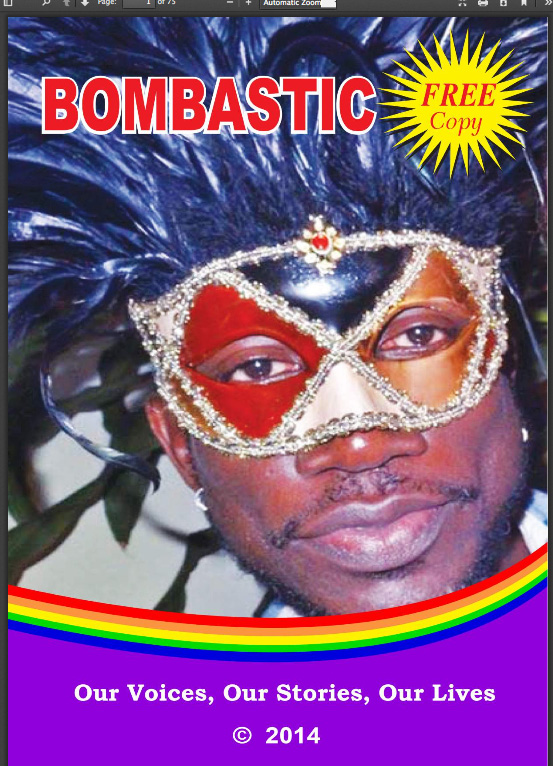A challenge to Uganda’s Anti-Homosexuality Act began today in the country’s Constitutional Court.
The suit argues that the law violates the constitutional right to equality before the law and rights to privacy, freedom of expression, and association. The challenge also protests that a quorum was not present when parliament voted for the bill on Dec. 20.
The bill, signed into law by President Yoweri Museveni on Feb. 24, has intensified a climate of fear among LGBT people in Uganda. Local tabloids have repeatedly outed alleged LGBT people in front-page stories, with photographs. Many have been harassed by neighbors and evicted by landlords; some have been arrested for questioning.
The LGBT rights organization Spectrum Uganda warned its members:
“Please do not come for the petitioning tomorrow at the Constitutional Court if you fear for your security. There is going to be plenty of media, so you are very likely to appear on TV later in the day.
“Take this seriously. Only those who do not mind can come, but the repercussions are graver than they seem, so take heed.”
The petition asks the Constitutional Court not only to overturn the law, but also to block it from being enforced in the first place.
It also asks for a gag order to prohibit publication of articles about adults who engage in consensual same-sex activity that “may bring such persons into public ridicule, odium and hatred.”
At a press conference after the petition was filed, Andrew Mwenda, a journalist who is one of the petitioners, said, “This Act not only represents an effort by the Executive and Parliament to scapegoat an unpopular minority for political gain but we believe it also violates the highest law of our country.”
Other petitioners include activists Frank Mugisha, Julian Pepe Onziema, and Jacqueline Kasha Nabagesera; former Ugandan opposition leader Ogenga Latigo, and member of parliament Fox Odoi; professors Joe Oloka-Onyango and Morris Latigo; Dr. Paul Ssemugoma, and the local organisations Human Rights Awareness and Promotion Forum (HRAPF) and the Centre for Health, Human Rights and Development (CEHURD).
The Anti-Homosexuality Law provides for:
- Life imprisonment for same-sex intimacy involving penetration — the same punishment currently provided under existing Ugandan law.
- Life imprisonment for anyone who “touches another person with the intention of committing the act of homosexuality.”
-
Forced medical examinations for anyone accused of being HIV-positive and of committing homosexual acts, which is termed “aggravated homosexuality,” also punishable by life imprisonment.
- Seven years in prison for attempts at committing “the offense of homosexuality.”
- Life imprisonment for HIV-positive people who attempt to commit “the offense of homosexuality.”
- Seven years in prison for anyone who “aids, abets, counsels or procures another to engage in acts of homosexuality.” LGBT rights activists fear that this provision and the next one will be used against them.
- Life imprisonment for same-sex marriage. (The Ugandan constitution already prohibits same-sex marriage.)
- Up to seven years in prison for conducting a same-sex wedding ceremony.
- Imprisonment for seven years for the “director or proprietor or promoter” of a company or association that is convicted of “promoting homosexuality.” In addition, the organization’s certificate of registration would be canceled.
The law also provides for five to seven years in prison for:
- Anyone who “attempts to promote or in any way abets homosexuality and related practices.”
- Publishing “pornographic materials for purposes of promoting homosexuality.”
- Anyone who “funds or sponsors homosexuality or other related activities.”
- Anyone who “offers premises and other related fixed or movable assets for purposes of homosexuality or promoting homosexuality.” Landlords who rent to LGBT rights groups are liable to imprisonment too.
- Anyone who “uses electronic devices which include internet, films, mobile phones for purposes of homosexuality or promoting homosexuality.”
Related articles
- Human Rights Advocates Challenge Uganda Anti-Homosexuality Law In Court (BuzzFeed)
- Lawsuit filed challenging Uganda’s Anti-Homosexuality Act (oblogdeeoblogda.me)
- Ugandans petition court over controversial anti-homosexuality law (trust.org)
- Clergy Reacts to Uganda’s Controversial Bill (talkradionews.com)
- Telecom Company Pulls Advertising from Ugandan Tabloid (hrc.org)
- Draconian details of Uganda’s misguided new anti-gay law (76crimes.com)
- Ugandan activists challenge anti-gay law in court (thestate.com)
- Ugandan Lesbian Evicted, Landlord Cites ‘Jail the Gays’ Law (advocate.com)
- Meet the American Pastor Behind Uganda’s Anti-Gay Crackdown (motherjones.com)
- Why has so much of Africa suddenly become so intolerant? (csmonitor.com)




















































